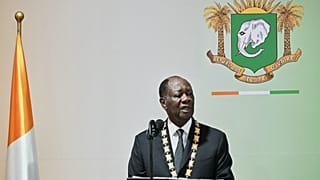United Nations
Governments around the world must take “ far-reaching and unprecedented changes in all aspects of society” to avoid disastrous levels of global warming, says a stark new report on climate change.
The report issued Monday by the UN Intergovernmental Panel on Climate Change (IPCC), says the planet will reach the crucial threshold of 1.5 degrees Celsius (2.7 degrees Fahrenheit) above pre-industrial levels by as early as 2030, as early as 2030, precipitating the risk of extreme drought, wildfires, floods and food shortages for hundreds of millions of people.
This means that Africa and other developing countries would find it harder to grow food or rear animals if the planet became warmer.
The date, which falls well within the lifetime of many people alive today, is based on current levels of greenhouse gas emissions.
The report is seen as the main scientific guide for government policymakers on how to implement the 2015 Paris Agreement, which aims to limit the rise in global average temperatures to “well below” 2C above pre-industrial levels, while seeking to tighten the goal to 1.5C. The report was finalised at a special meeting in South Korea last week.
More frequent or intense droughts, such as the one that nearly ran the taps dry in Cape Town, South Africa, are also pointed to as expectations as we reach the warming threshold, the report warns.
According to the World Resources Institute in Washington, DC, greenhouse gas emissions caused by the energy sector in industrialised nations are the major “culprit” behind global warming with China, the United States, and the European Union being the “top three greenhouse gas emitters”.













01:36
DRC, Liberia among five new non-permanent UN Security Council members
01:17
Israeli recognition of Somaliland is a 'calculated distraction,' Somali diplomat says
01:40
UN Finds dire conditions on first visit to Sudan’s el-Fasher since its fall
01:33
UN Security Council divided over Israel’s recognition of Somaliland
02:01
UN Chief urges world leaders to choose peace over war in new year message
01:14
CAR deploys armed forces and MINUSCA to secure elections